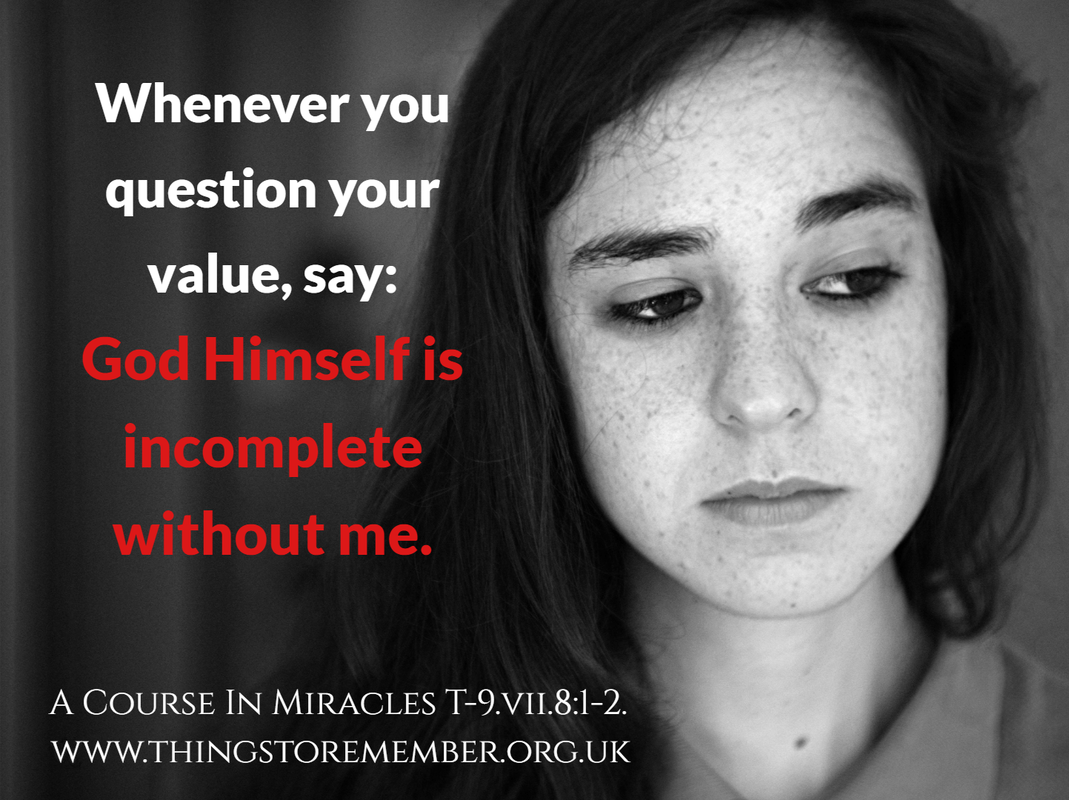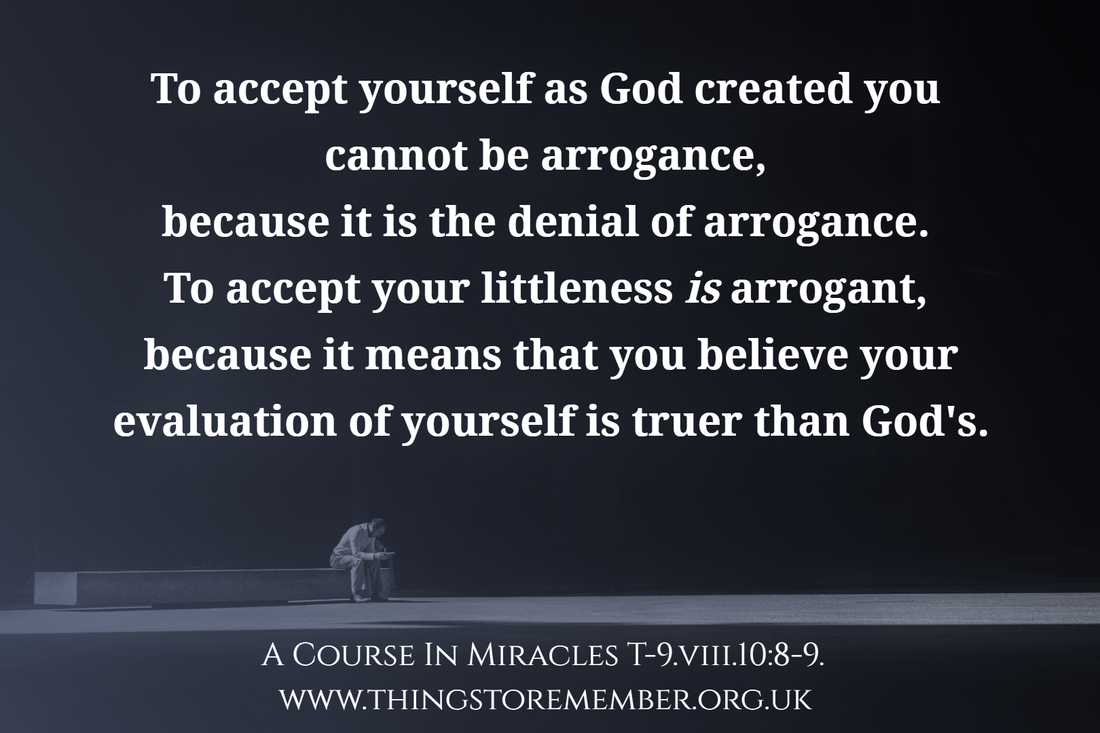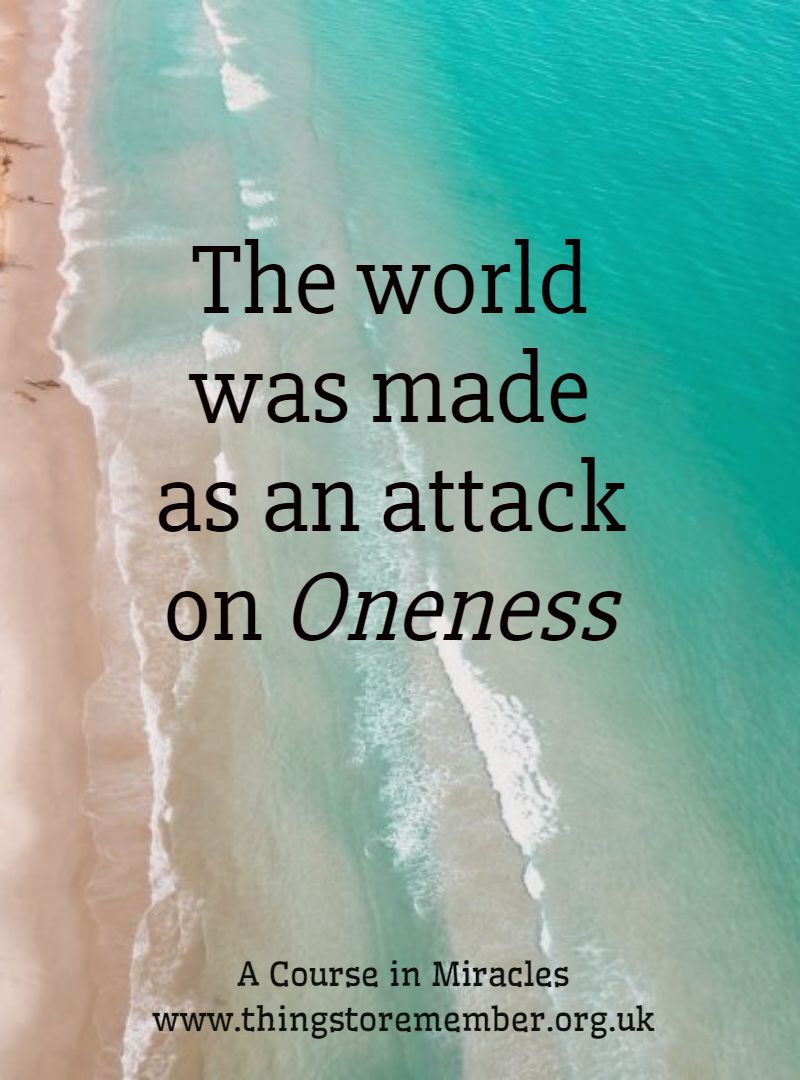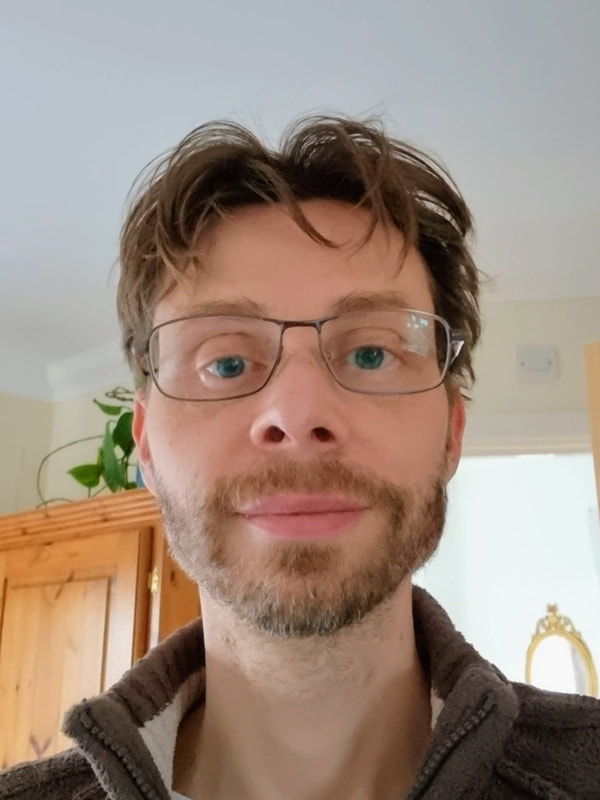|
At this time of year, it's traditional for radio stations to count-down the top 10 Christmas carols, or the top 100 hits of all time. In that spirit (and in no particular order) I'd like to share this play-list of hymns, chants, and uplifting contemporary songs with a focus on oneness or universal love.
Bonus track. Here's a piece of piano music (including rain sounds and binaural beats) which I find works well in place of a mantra at the start of a period of meditation. For the last few weeks I've been listening to it for 10-15 minutes a day, and - whatever the science - it certainly seems to put a smile on my face.
0 Comments
"I am the true vine... "I am the true vine" (John 15:1) is one of several I am sayings featured in John's gospel. Many people interpret these sayings as Jesus making certain claims about himself... He, Jesus of Nazareth, is the true vine. He, Jesus of Nazareth, is the way, the truth and the life (John 14:6). And, by the way, "No one comes to the father except through me" (John 14:6 continued).
It feels to me that, when Jesus spoke in those terms, he was speaking of his innermost Identity, his eternal Self, or Spirit. We might call it the Christ Self, at one with God. It is the Self beyond birth and death; unlimited by time and space and eternally present: "Before Abraham was born, I am" (John 8:58). Jesus identified with his eternal Self. But the Christ Self isn’t limited to the person of Jesus, because the Christ Self has no limits. Jesus’ True Self is our True Self as well. Seen in that light, how might we interpret his words about the True Vine? To “remain” in the Christ Self is to abide in it. We might experience a state of “I am” awareness from time to time. Last week, a meditation facilitated by Eckhart Tolle helped to still my thinking mind and expand my identity beyond the small, temporal, self of Peter Parr - so that I spent an hour or so in the kingdom of heaven. But what if those excursions into Oneness became not the exceptions, but the norm? That would be remaining in the vine. “No branch can bear fruit by itself; it must remain in the vine. Neither can you bear fruit unless you remain in Christ-consciousness.” (Interpretation of John 15:4) “I [True Self] am the vine; you are the branches. If you remain in me [in a state of awareness of your True Self] and I in you, you will bear much fruit; apart from me you can do nothing.” (John 15:5) The fruit being referred to here is of the Spirit. In Paul’s letter to the Galatians, he writes of the fruits of the spirit as being "love, joy, peace, forbearance, kindness, goodness, faithfulness, gentleness and self-control" (Galatians 5:22-23). A similar list appears in A Course in Miracles, where characteristics of God's teachers are listed as trust, honesty, tolerance, gentleness, joy, defencelessness, generosity, patience, faithfulness and open-mindedness (Manual for Teachers, Section 4). We’re all branches in the same vine, so these are the fruit we each will bear - but only if we abide in the Vine so that Christ’s is the vision with which we see; His the one mind with which we think. Dear Lord One of my favourite parables in the New Testament is the tale of the prodigal son (Luke 15:11-32). God has given His promise that he will never forsake us. Though we may wander, he is ready always, standing at an open door, to welcome us Home with loving arms. He cannot abandon us, because we are and forever will be a part of Him. But we also have His promise in another sense of the word. When we say that a musician or sportsperson has promise, we mean that they have great potential. This is true of all of us. We hold the promise not to be great in a worldly sense, but to be God-like. To realise our Self as He created us and to be His loving presence. God's promise is not idle, but a guarantee - surer that anything in this world. If we have God's promise, there can be no insurmountable barrier to realising it. It isn't a question of 'if', but only 'when'. A happy outcome to all things is sure. In online Quaker Meeting for Worship this morning, someone spoke about Jesus' exhortation to love our enemies (see Luke 6:27). She asked how can we love our enemies, in particular those in positions of power. (Donald Trump, not the most popular figure among liberal-minded Quakers, got a specific mention.) After several minutes, I felt that familiar pounding in my chest - and knew that I had to speak. It's the first time that I've given vocal ministry in an online Quaker Meeting. These are the words which came to me: How do we love our enemies? Jesus didn't agree with his enemies; with those who crucified him. He didn't like what they did. But he forgave them.
Forgiveness is an unconditional expression of love. It's central to the teaching of A Course in Miracles. Indeed, The Course might easily have been called 'A Course in Forgiveness'. The Course tells us that forgiveness is our function (Lesson 62 of the Workbook); that it's the key to happiness (Lesson 121); that it offers everything we want (Lesson 122). In my new book, Encounters with A Course in Miracles, I devote a chapter to exploring what forgiveness is - and how we can open ourselves to forgive. To quote from Encounters, "In the world's eyes, to forgive a person means to pardon them for some wrongdoing. Their action caused us hurt but, because we're nice people, because we're charitable, we deign to forgive them. They're guilty and deserve condemnation, but instead we overlook their offence. "In the Course, forgiveness is something very different. It's a letting go of judgment, which helps us to see one another as we really are. It's the prerequisite for recognizing our oneness with our brothers and God." But how do we forgive Donald Trump (or insert here the name of your own personal bogeyman)? To understand the how of forgiveness, we might begin with the why. Forgiving another is a way of loving ourselves. To forgive means to let go of guilt. It doesn't matter whether the guilt is directed at ourselves (owned) or at others (projected). For as long as we hold on to guilt, we won't be at peace. Perhaps we aren't ready yet to let our hurt or our anger go. And that's okay. The first step is simply to notice our feelings. And then to acknowledge that, if we wanted to, we could choose peace instead. Can we really see peace when Donald Trump posts his latest tweet - and once again his words go against our deepest-held values and beliefs? Ask yourself this. "Is God withholding peace from us? And if God isn't, then who is? Donald Trump? If we think that, we're giving him power over our own happiness. He's not simply the President, he's become the ruler of our mind." (Encounters with A Course in Miracles.) Encounters with A Course in Miracles will be available in July 2020. “Come to me, all you who are weary and burdened, and I will give you rest.” As I interpret these words, Jesus is recalling us to the Christ Self – which He was and is, and which is our innermost Identity too. "Take my yoke upon you and learn from me, for I am gentle and humble in heart, and you will find rest for your souls." (Matthew 11:29) We are weary and burdened on a soul level – an inevitable consequence of believing we are separate individuals, apart from the Whole, doomed ultimately to wither and die. To borrow the analogy used in Chapter 15 of John’s gospel, we are living our lives as branches that have been cut from the vine. Sometimes, when working at my computer or carrying out some household task, I catch myself becoming impatient; wanting the task to be over so that I can move on to the next – more interesting – thing. Completion of the task has become my goal, and I’ve lost touch with my primary purpose, which is about my state of mind. My primary purpose can be described variously as being at peace; being whole; forgiveness (as understood in A Course in Miracles); coming to Christ; remembering my Self. Whenever I find myself getting impatient, hurrying, agitated or not at peace, it is time to pause, take a deep breath and, as John Butler advises, "feel my feet on the ground". Can I now resume the activity and be at peace? If not, it would be better to step away from the activity and give my mind space and time to return to stillness; to return to Christ. That is the yoke I yearn to take upon me. And it is my primary task. “I rest in God.” This thought will bring to you the rest and quiet, peace and stillness, and the safety and the happiness you seek. “I rest in God.” This thought has power to wake the sleeping truth in you, whose vision sees beyond appearances to that same truth in everyone and everything there is. Here is the end of suffering for all the world, and everyone who ever came and yet will come to linger for a while. Here is the thought in which the Son of God is born again, to recognize himself. When I "set aside times of quiet for openness to the Holy Spirit" (Quaker Advices & Queries No.3); when I "step back and let Him lead the way" (A Course in Miracles Workbook Lesson 155), I need to trust that I will receive Guidance. The Guidance won't always come immediately. And, when it does come, it won't always be in the form of words. So I need to be attentive to those messages from the Universe, from whatever direction they may come. In the last two weeks, I've had two reminders of this... Seeing this hydrangea in bloom in my garden among the skeletal remains of last summer's blossoms recalled my mind to this line from A Course in Miracles: "And everywhere the signs of life spring up, to show that what is born can never die, for what has life has immortality". (W-p11.13.5:4.) The following week, I came downstairs to find another reminder from the Universe staring me in the face on my doormat. "You deserve better," the flyer proclaimed. Better insurance cover for my boiler? Or, perhaps, better than the state of mind I'd got myself into by entertaining thoughts of separation and of lack: "The truth about you is so lofty that nothing unworthy of God is worthy of you." (T-9.VII.8:4)
"Here’s a quiz question for you…" said Eric. "No looking at your books! Which lesson title is so central to the Course's teaching that it appears in the Workbook three times? Do you give up?"
"'God is but love and therefore so am I?'" suggested Mark. "Not quite, but it’s a good guess. It’s actually very close: 'I am as God created me.'" Daisy began looking it up in the contents. "Lesson 94," she said. "...Lesson 110... and Lesson 162!" "Maybe Jesus ran out of fresh ideas," said Christopher. "If we believe we can alter, or destroy, or tarnish what God created, are we not in effect saying we’re more powerful than God? And isn’t that the height of arrogance, however we dress it up? So it isn’t humble to feel guilty. It isn’t modest to feel unworthy. But nor is it a sin! It’s simply a mistake… a false idea about the Son of God. And that, dear friends, is the Course in one lesson." "Or in three," said Christopher. Eric raised his eyes to the ceiling. The above is an extract from Peter M Parr's forthcoming new book, Encounters with A Course in Miracles, to be published in 2020. A Course in Miracles uses religious-sounding language. For some Course students, words like 'Christ', 'forgiveness', or even 'miracle' may carry unhelpful associations. While the Course interprets these words differently from how they've come to be used in traditional Christianity, when we read them the likelihood is that we'll interpret them through the filter of our previous learning. That may make it harder for us to engage with the Course's teaching wholeheartedly and with an open mind.
It's important to remember that words are only symbols. They point beyond themselves. If I talk about the Holy Spirit, for example, and that doesn't resonate, translate it into language that does… Maybe 'Inner Guide' or, as Quakers might say, 'the promptings of love and truth in your heart'. One word which can often be a particular barrier is 'God'. I trust that "God is Love" (1 John 4:16 is, for me, one of the most beautiful Bible verses). Nevertheless, perhaps unconsciously, the word God still carries associations of a stern father figure. So, when I read the word God in the Course, to remind myself that this is not the judgmental (man-made) 'god' I may have heard about in the past, I add “…Who is Love”. For example, in Lesson 44, I read, "We cannot see truly apart from God, Who is Love." If my perception is clouded by thoughts of judgment or condemnation; if there's a lack of love, I'm not seeing truly. In the Course, some words are virtually synonymous... God is Love. (See Workbook Lesson 103, "God, being Love, is also happiness"; and Workbook Review V, "God is but Love, and therefore so am I."). God is also Oneness. (See, for example, Workbook Lesson 169 5:1-2: "Oneness is simply the idea God is. And in His Being, He encompasses all things."; and Text 27:VIII.6:2: "Into eternity, where all is one, there crept a tiny, mad idea, at which the Son of God remembered not to laugh".) Exchanging one word with its synonym sometimes helps me shed fresh light on what a 'tricky' passage may be saying. Take this one: "The world was made as an attack on God" (Workbook, Part II, 3.2:1 - 'What Is the World?' section). That's a dramatic statement, but I find it hard to get my head around. But if I read it as, "The world was made as an attack on Oneness", I'm still being authentic to its intended meaning (I think) - and it begins to make more sense. The world, with it myriad forms, witnesses to separation... and, of course, separation appears to deny Oneness. Here's another example, drawn from Lesson 51 of the Workbook: "I have judged everything I look upon, and it is this and only this I see. This is not vision. It is merely an illusion of reality, because my judgments have been made quite apart from reality". To say that 'my judgments have been made quite apart from reality', is to say they've been made apart from God (or apart from the 'Voice for God', which the Course uses interchangeably with 'Holy Spirit'). God is Love. If my judgments are made apart from God, they'll be lacking love. To quote from the new book I'm writing: "God, Who is Love, creates only like Himself. And what doesn’t arise from God can’t exist in reality. Thoughts that we’re separate, or sinful, or anything less than whole don’t come from God. If we accept that, those thoughts can’t be real. And what isn’t real can have no effect on reality. The world we perceive is built on meaningless thoughts of separation. But neither our thoughts nor their effects alter the truth of who we are, or make the slightest dent in God’s love." From time to time, I'll post some picture quotes, where I've replaced the original word used in the Course with its synonym. I'll also post them to my Pinterest site. In the quote below, the original is, "The world was made as an attack on God" (Workbook, Part II, 3.2:1 - 'What Is the World?' section). |
AuthorPeter Parr: Quaker, writer and former member of the British minigolf team. (Actually those are all just roles I play. Words can't describe who any of us really are.)
|










 RSS Feed
RSS Feed


